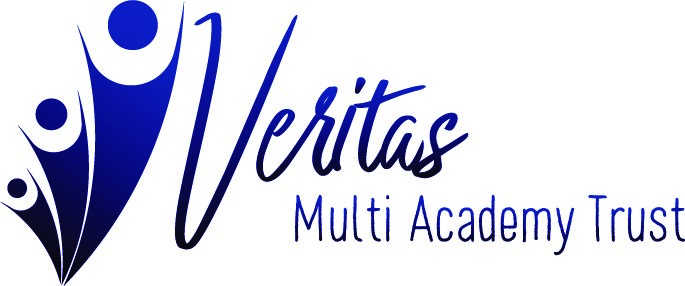Subjects
In this section you will find some information that outlines some of the subject strategies used at Mundella Primary School as well as some links to resources to support learning at home.
Reading
At Mundella Primary School, reading is at the very heart of our curriculum. Through the curriculum and our practice, we strive to develop a culture of reading through consistently using high quality texts that demonstrate aspirational language and grammatical structure.
We make every effort to ensure that all children become successful and fluent readers. We believe that children who read well by the age of 11 make new discoveries and develop wider interests, gain knowledge, creativity and confidence. Reading is the key to unlocking every child’s full potential and opens up a world of possibilities.
Our children first ‘learn to read’ and then ‘read to learn’. As a school we endeavour to provide a rich and stimulating reading environment. We enable our children to read with confidence, accuracy, fluency, understanding and enjoyment through the approaches that we utilise.
Children are encouraged to foster an enthusiasm for and love of reading for life.
Here is an overview of core texts that are used within each of the topics.
Accelerated Reader
At Mundella we use 'Accelerated Reader' from Year 2 onwards. This allows children to choose a book they want to read from their ZPD level. After reading the book they complete a comprehension quizz online which helps to improve and sharpen their reading skills. The children have opportunities to regularly read which encourages engagement and outcomes.
Pupils can log on to the school AR page here.
Supporting reading at Home
Recommended Reads from Books For Topics: Pre-school, EYFS, Year 1, Year 2, Year 3, Year 4, Year 5 and Year 6
https://www.booksfortopics.com/
Recommended Poetry Reading from Atom Learning for KS2
Phonics
Phonics is a way of teaching children to read quickly and skilfully. They are taught how to recognise the sounds that each individual letter makes; identify the sounds that different combinations of letters make such as /sh/ or /ee/ and blend these sounds together from left to right to make a word. The children are taught phonics through the use of the Little Wandle Phonics scheme, a Synthetic Phonics Programme endorsed by the government.
At Mundella Primary School, we believe that all our children can become fluent readers and writers. To support our children with phonics, we have adopted the Little Wandle Letters and Sounds Revised scheme, which is a systematic and synthetic phonics programme. We start teaching phonics in EYFS and follow the Little Wandle Letters and Sounds Revised progression, which ensures children build on their growing knowledge of the alphabetic code, mastering phonics to read and spell as they move through school.
As a result, our children are able to tackle unfamiliar words as they read.
At Mundella Primary School, we also model the application of the alphabetic code through phonics in shared reading and writing, both inside and outside of the phonics lesson and across the curriculum. We have a strong focus on language development for our children because we know that speaking and listening are crucial skills for reading and writing in all subjects.
At Mundella Primary School, we value reading as a crucial life skill. By the time children leave us, we endeavour that they will be able to read confidently for meaning and regularly enjoy reading for pleasure. Our readers are equipped with the tools to tackle unfamiliar vocabulary. We encourage our children to see themselves as readers for both pleasure and purpose.
Spelling
At Mundella Primary School, we strive to support children in their development in spelling through the explicit teaching of spelling rules and patterns through a progressive scheme. Teachers demonstrate to pupils the relationships between words, how to understand nuances in meaning, and how to develop their understanding of, and ability to use, figurative language.
They also teach pupils how to work out and clarify the meanings of unknown words and words with more than one meaning. Pupils will be taught to control their speaking and writing consciously and to use Standard English.
Implementation
At Mundella Primary School we develop children’s knowledge of spelling patterns and rules in the first instance with the structure and use of the The Little Wandle phonics scheme. This scheme is used throughout EYFS and KS1. From Year 3 through to Year 6, we use the Twinkl Planit Spelling progression. Children in KS2 partake in a discrete whole class spelling session at the beginning of the week. Children are taught rules from English Appendix 1 of the National Curriculum. Every child is then given a set of spellings, taken from the statutory word lists for their relevant year group, to practice.
More about Implementation
During EYFS, children are taught spelling through the delivery of the Little Wandle Scheme. Simultaneously children are taught ‘Tricky Words’ (see Phonics Curriculum document for the outline of the tricky word progression) also matched to the Little Wandle phonics scheme.
Children are taught to apply the daily taught graphemes into regular words. The progression has been organised so that children are taught from the simple to more complex GPCs, as well as taking into account the frequency of their occurrence in the most commonly encountered words. All the graphemes taught are practised in words, sentences, and later on, in fully decodable books.
Children review and revise GPCs and words, daily, weekly and across terms and years, in order to move this knowledge into their long-term memory. Children learn the phoneme linked to the grapheme, read words containing the phoneme and then practice writing words containing the grapheme. This method seeks to develop the reciprocity of reading and spelling to write.
EYFS and Spelling
During terms 1 and 2 children are taught phase 2 phonemes which they are supported to develop into spelling. During terms 3 and 4, children are taught phase 3 phonemes which they then apply progressively into
- Short vowels CVCC, CCVC,
- Short vowels CCVCC, CCCVC, CCCVCC,
- Longer words compound words,
- Root words ending in: –ing, –ed /t/, –ed /id/ /ed/ –est,
- Long vowel sounds CVCC CCVC,
- Long vowel sounds CCVC CCCVC CCV CCVCC,
- Phase 4 words with –s /s/ at the end
- Phase 4 words with –s /z/ at the end
- Phase 4 words with –es /z/ at the end
- Longer words
- Root words ending in: –ing, –ed /t/, –ed /id/ /ed/, –ed /d/,
- Root words ending in: –er, –est longer words
Writing
At Mundella, we aim for all of our children to be able to write independently in a variety of genres and for a range of purposes with fluency, accuracy and enjoyment.
We believe children should understand, from an early age, that their writing needs to be accurate, legible and set out in an appropriate way. It is our endeavour that the children will learn to enjoy writing, see the value of it and to leave us as confident, accomplished writers.
From early on in their learning journey, children explore a range of genres, see adults writing and experiment themselves through mark marking, symbols and conventional script. As children move through the school, children develop an understanding that writing is essential to thinking and learning but also enjoyable in its own right. They learn the main rules and conventions of written English and start to explore how the English language can be used to express meaning in different ways.
Powerful teaching techniques, such as shared and guided writing, mean children are exposed to high quality demonstration, exploration and discussion of the choices writers make. Children use the planning, drafting and editing process to improve their work and, alongside effective feedback, are encouraged to become reflective, resilient writers.
We believe children require a secure understanding of spelling, punctuation and grammar to develop a true understanding of English and to be successful, so these concepts are taught discretely in engaging ways. Through careful planning, teachers introduce new concepts in relation to the genre that the children are currently studying.
We also feel that children should be able to write with ease, speed and legibility so follow a consistent approach across the school to the teaching of handwriting.
Here is our Long Term Plan for Writing
Here are some tips for supporting writing at home.
Handwriting
At Mundella Primary School, we strive to support children in their development of a neat, legible and fast handwriting style. Through observing, modelling and repeated practice, pupils develop the ability to produce letters automatically. To develop this style children experience coherence and continuity in learning and teaching across the school.
More about handwriting at Mundella
They will develop a recognition and appreciation of pattern and line whilst understanding the importance of clear and neat presentation in order to communicate meaning clearly. Children are encouraged to take pride in the presentation of their work and therefore study handwriting with a sense of enjoyment and achievement.
We intend for children to be able to write quickly to aid expressing themselves creatively and imaginatively across the curriculum and for a range of purposes.
Implementation:
Handwriting is a complex skill to learn and starts well before a child is ready to pick up a pencil and make marks on paper.
To develop good handwriting children need to:
- Have good whole body strength and dexterity (Gross & Fine Motor Skills).
- Understand direction, movement and position (Spatial Awareness & Motor Memory).
- Remember and recall how to form the different shapes of the letters (Visual & Motor Memory).
- Sit correctly (Gross Motor Skills).
- Hold a pencil appropriately (Fine Motor Skills).
- Control the pencil (Fine Motor Skills).
- Tilt and move the paper on the desk (Gross Motor Skills & Spatial Awareness).
- Refine letter formation and position (Fine Motor Skills, Visual & Motor Memory, Spatial Awareness & Eye Tracking).
- Join the letters to form words (Fine Motor Skills, Visual & Motor Memory, Spatial Awareness & Eye Tracking).
All these skills and strengths are learnt and developed in stages as a child grows. A weakness in any of the Key Strength areas will affect a child’s handwriting skills.
All handwriting lessons have a similar structure. Lessons begin with warm up activities to prepare the body for writing these include an activity to develop and build hand and wrist strength, upper body strength and improve co-ordination. These warm up activities are aimed at developing gross and fine motor skills to build strength and stability, and visual perception skills to discriminate between different letter shapes.
We have a whole school cumulative approach to handwriting. Children begin their journey learning pre-handwriting patterns as the first step in handwriting. Pre-handwriting patterns help them to learn the shapes and directional pushes and pulls of the writing tools required to form letters. All letters are a combination of these shapes and lines.
To support our approach to handwriting, children use the handwriting formation descriptions from the Twinkl Handwriting Scheme.
Mundella Handwriting Scheme
Early Years Foundation Stage
Delivered initially through gross and fine motor skill activities, progressing to letter formation using the Twinkl formation guides. Staff model the letters to children using the Little Wandle pictures but adopt the Twinkl formation chart to describe the letter shapes. This use of the Twinkl formation continues across the school enabling a smooth transition from class to class.
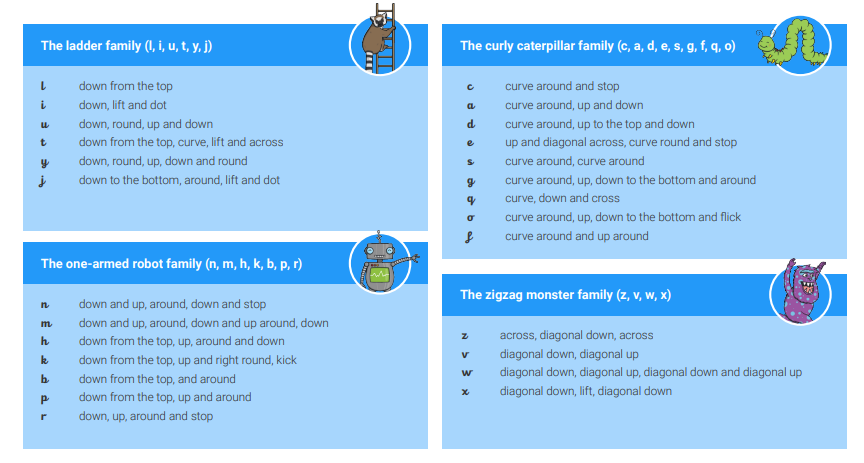
Year 1 and Year 2
In Year 1, children revise how to form all letters of the alphabet and numerals using a printed style. This is continued in Year 2, where they master letter formation and are taught to form letters with a lead out line ready for joining in Year 3. All topic lessons reinforce accurate letter formation and staff quickly identify and correct bad habits in a timely manner with additional personalised learning.
Capital letters and number formation are taught as part of topic lessons and guided learning sessions in the handwriting book. This could be at the start of a topic lesson as a writing lesson warm up. Numerals are taught explicitly as part of maths or guided learning lessons. Capital letters are taught using the sequence outlined below. Lessons follow a specified format of a gross and fine motor skill warm up followed by letter formation practice.
Capital Letter Formation
|
Skill |
Letters |
|
Capital letters no lifts |
V, W, N, Z C, O, S, U L, D, P |
|
Capital letters with 1 lift |
M, B, R K, Y, X Q, G |
|
Capital Letters with 2 lifts |
E, F, I, T, H J, A |
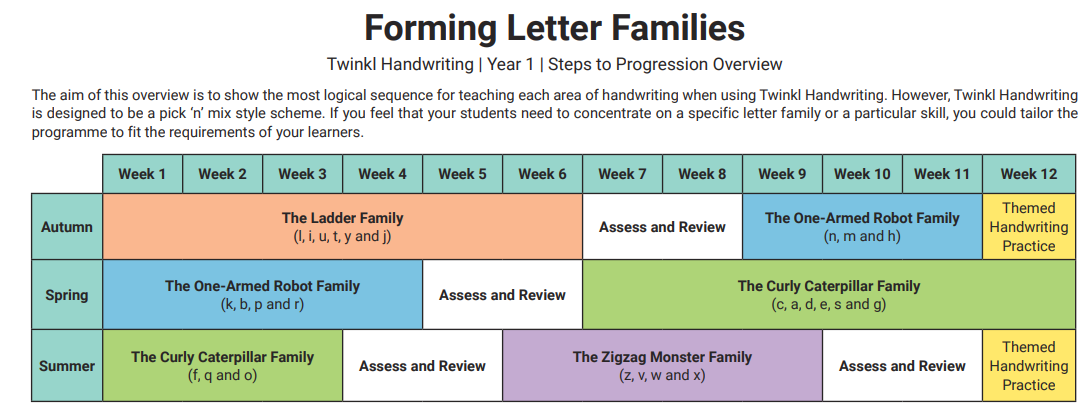
Years 3 and 4
In years 3 and 4, children are taught how to join letters. Children are expected to have already mastered the formation of capital letters and numerals. For those children falling behind, targeted interventions are delivered. Lessons follow a specific formula of gross and fine motor skills warm up followed by focussed instruction.
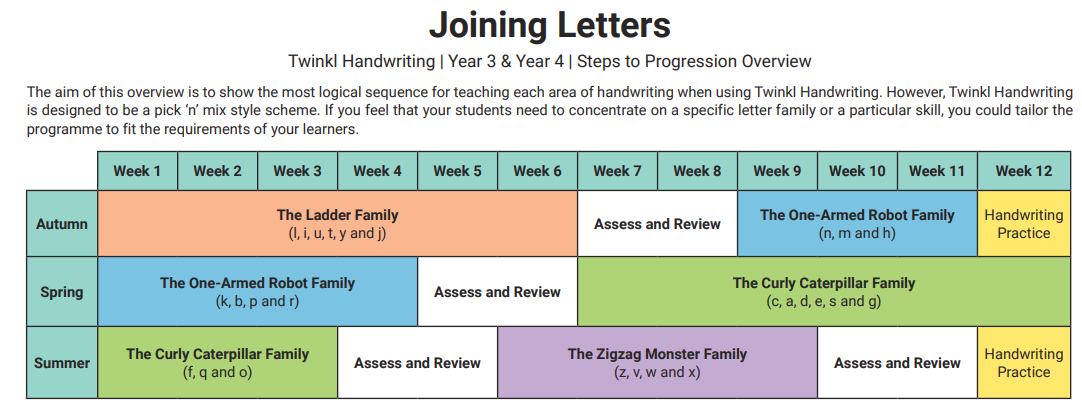
Years 5 and 6
In years 5 and 6, children are taught fluency, speed and style. Children are expected to have already mastered the formation of capital letters and numerals. For those children falling behind, targeted interventions are delivered.
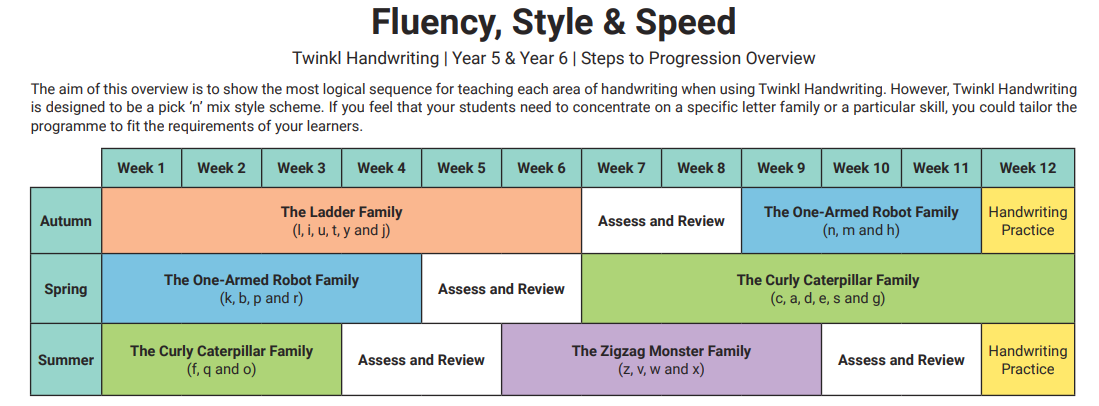
Maths
Intent
At Mundella Primary School we follow a maths mastery approach. We aim to promote children’s curiosity and enable them to safely take risks and learn from first-hand experience wherever possible.
more information about Intent
Our primary focus is to support all children to become fluent in mathematical understanding from the most basic level so that they can build upon their own understanding. We aim to enable our children to develop conceptual understanding, recall number facts and patterns and to apply their knowledge rapidly and accurately. We promote children’s ability to reason through opportunities to discuss their thinking and understanding. We aim to promote problem solving and solution finding.
Mastering maths means pupils acquiring a deep, long-term, secure and adaptable understanding of the subject. The phrase ‘teaching for mastery’ describes the elements of classroom practice and school organisation that combine to give pupils the best chance of mastering maths. Achieving mastery means acquiring a solid enough understanding of the maths that has been taught to enable pupils to move on to more advanced materials.
Implementation
To support our Teaching for Mastery we have embedded the new scheme of learning by White Rose Maths Hub across the school, adapting it where appropriate to suit the needs of our classes.
more information about Implementation
The scheme has been designed to support the aims and objectives of the National Curriculum. White Rose provides teachers with blocked units, offering greater time frames to deliver and explore the objectives in. These blocks are further broken down into small steps, giving children the opportunity to take more time to develop their understanding. Lessons will promote fluency, reasoning and problem solving with all children being given the opportunity to achieve and experience these.
In EYFS, the children develop the concept of maths mastery through maths talk, practicing the skills they've learned during play, and developing number sense. We support our children to achieve mastery in the early years by making activities fun and part of our daily routine. Maths in EYFS is delivered through the key concepts, which underpin our early mathematics curriculum. The six key areas of early mathematics learning, which collectively provide firm foundations for everything children learn as they progress through school. These key areas are: cardinality and counting, comparison, composition, pattern, shape, space and measures. We use number rhymes and songs on a regular basis and teach maths daily using the White Rose scheme of learning as a basis for adaption to suit the particular needs of the children. Through the provision of topic linked challenges and access to maths equipment, additional practice linked to the current class core learning is promoted and encouraged during child-initiated activities.
At Mundella, where possible, the whole class is taught maths together and moves through topics and concepts at broadly the same pace. We spend more time on key topics and concept to ensure learning is well developed and deeply embedded before moving on. We believe that the vast majority of children can succeed in learning mathematics in line with national expectations. The learning needs of individuals are addressed through careful scaffolding, questioning and appropriate intervention where necessary, to provide the appropriate support and challenge. Same day intervention is used in Guided Learning sessions to support slower graspers and to address misconceptions. We challenge children by asking them to explore concepts deeply through verbal reasoning and problem solving tasks.
At Mundella, we use our Off Plan Weeks and Outdoor Learning lessons to provide opportunities for children to understand and experience mathematics in other areas of the curriculum and in life.
Use the links, below, to see the Maths Overviews for each of the Year Groups.
Physical Education
Physical Education, Health and Well-being are important elements of the curriculum and life of Mundella Primary School. External coaches from The Sports Trust, CH Tennis and KDance delivery weekly lessons from Year 1 to Year 6 alongside the class teachers. This is to broaden the range of games and sports that the children encounter and also to develop opportunities to represent Mundella against other local schools in either inclusive or competitive events. All classes across the school have opportunities to take part in at least one event during an academic year. Additional PE lessons, focusing on Dance or Gymnastics, are delivered by class teachers using the Twinkl Move Scheme.
The children at Mundella have additional opportunities to take part in a range of sports as part of our extra-curricular programme. Sports clubs are offered for all children across the school and a number are provided by external coaches. This also includes the opportunity once a week to play Tennis during our free breakfast club.
Mundella has House Captains that represent our four houses. These children plan a variety of house events throughout the year which gives all children at Mundella the opportunity to compete in a range of sports for their house.
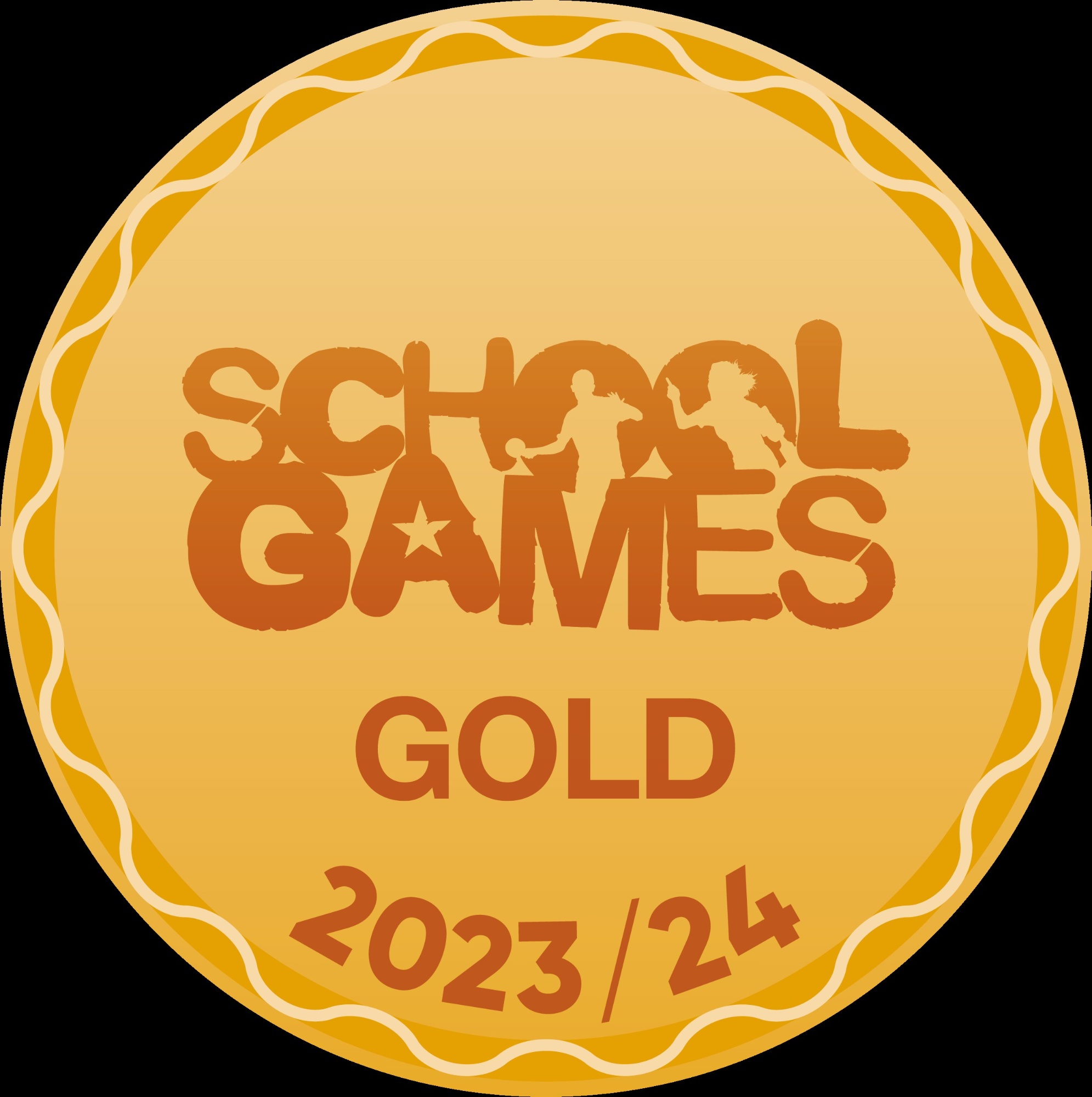
We successfully gained our first Gold School Games Mark in 2023 and achieved it again last year. The School Games Mark recognises all the work that pupils and staff, at team Mundella, put into their PE and additional activities.
More About School Games Mark
The criteria of the School Games Mark aligns directly with the School Games outcomes. Schools will need to demonstrate how they are/have:
- maintaining and growing your school’s engagement in the School Games and your delivery of 60 active minutes for every child
- create positive experiences by ensuring physical activity and competition provision is designed to reflect the motivation, competence and confidence of your young people and has a clear intent
- a clear focus on transition points and how secondary schools engage in the School Games
- create positive experiences to support character development of targeted young people
- advocated to key stakeholders how the School Games makes a meaningful difference to the lives of children and young people, including engaging and educating parents.
The criteria for this year's School Games Mark can be found here.
We are already looking forward to playing in many friendly and competitive competitions in the year ahead.
Find out more about how we use our Sports Premium Funding here.
Here is our Long Term Plan for PE
Religious Education
At Mundella Primary School, pupils come from a diversity of ethnic, cultural, religious and linguistic backgrounds. Through the study of religious education, pupils’ understanding of the multicultural and multi-faith society that we live in today is promoted.
These studies, when combined with sensitivity to the differences of faith, culture and practice within our school, both leads to and promotes an atmosphere of tolerance and goodwill to others.
At Mundella Primary School we use the Kapow Primary’s Religion and Worldviews scheme of work which supports an inclusive understanding of beliefs, fosters critical thinking and respect for diverse perspectives among children. Pupils learn about traditions, rituals, and theologies through multiple lenses.
We are following the Kapow transition plan 2024-2025 as we move to this scheme of work.
PSHE and Relationships Education
At Mundella, we use the Twinkl PSHE and Citizenship scheme of work which aims to equip children with essential skills for life. A Mundella, we want to develop the whole child through carefully planned and resourced lessons that develop the knowledge, skills and attributes children need to protect and enhance their wellbeing.
Through our PSHE lessons, children will learn how to stay safe and healthy, build and maintain successful relationships and become active citizens, responsibly participating in society around them.
The lessons in this scheme of work have their foundations in seeing each and everybody’s value in society, from appreciation of others in units such as Diverse Britain, to promoting strong and positive views of self in Think Positive and Be Yourself.
The Twinkl units aim to cover a wide range of the social and emotional aspects of learning, enabling children to develop their identity and self-esteem as active, confident members of their community. The themes and topics support social, moral, spiritual and cultural development and provide children with protective teaching on essential safeguarding issues, developing their knowledge of when and how they can ask for help.
Here is our Long Term Plan
Here is our Relationship and Sex Education Policy
Science
Intent
At Mundella, our aim in Science is to increase pupils’ knowledge and understanding of the world, and develop skills associated with Science as a process of enquiry.
We develop the natural curiosity of the child, encourage respect for living organisms and the physical environment and provide opportunities for critical evaluation of evidence. We believe that a high-quality science education should engage, stimulate and challenge pupils.
We encourage children to learn from and be inspired by the work of great scientists and understand the impact Science can have on a national or global level.
As pupils progress, we support them to be able to pose increasingly complex scientific questions and carry out experiments with increasing accuracy and skill.
Here is our 2024-25 Science Long Term Plan
Implementation
At Mundella, the knowledge and skills that children will develop throughout each science topic are mapped out across each year group and across the school to ensure progression. Skills are planned to best match each unit of knowledge and progress year-on-year.
Opportunities to practise and embed skills are planned for so that they are revisited and refined over time. Science is taught every term and the unit chosen links to the class topic.
Teachers plan a sequence of lessons for each unit that build on the previous lesson. Each topic has new knowledge – linked to prior knowledge - that will support the children to understand increasingly complex scientific phenomena and processes.
Scientific vocabulary is mapped out for each topic and included on the children’s knowledge organiser and class working walls. Vocabulary is taught rigorously to ensure that children can use scientific terminology accurately and confidently.
Each lesson starts with a retrieval practice task to help children learn more and remember more. Opportunities to learn outdoors and explore our natural environment are provided during Science lessons, Outdoor Learning.
Impact
The impact of our science curriculum can clearly be seen in the children’s books. At the beginning of each unit, a knowledge organiser details the key learning and skills for that topic.
Throughout the topic, children use the knowledge organiser as a learning tool and to assess their retrieval practice tasks. Teachers use a variety of formative assessment strategies to track the children’s progress.
On completion of the topic, children create a page in their topic books of key learning they can remember from the topic. Objectives are assessed for each child on Sonar. Teachers then make judgements as to whether each child is working at the expected level.
Children who are falling behind are given opportunities to revisit skills and knowledge throughout the year.
Computing
At Mundella, we use the Twinkl Computing scheme of work which we link to our class topics where possible. The scheme offers a structured sequence of lessons, helping teachers to ensure that they have covered the skills required to meet the aims of the national curriculum.
The content allows for a broad, deep understanding of computing and how it links to children's lives. It offers a range of opportunities for consolidation, challenge and variety. This allows our children to apply the fundamental principles and concepts of computer science.
They develop analytical problem-solving skills and learn to evaluate and apply information technology. It also enables them to become responsible, competent, confident and creative users of information technology.
The Twinkl lesson plans and resources help children to build on prior knowledge at the same time as introducing new skills and challenges. In KS1, the focus is on developing the use of algorithms, programming and how technology can be used safely and purposefully.
In KS2, lessons still focus on algorithms, programming and coding but in a more complex way and for different purposes. Children also develop their knowledge of computer networks, internet services and the safe and purposeful use of the internet and technology. Data Handling is featured more heavily in UKS2. Skills learnt through KS1 and LKS2 are used to support data presentation.
(Here is the long-term overview for Computing)
Music
Music can be heard throughout the week at school, from singing rhymes in EYFS, to pupil's playing instruments in music lessons and singing enthusiastically in assemblies.
All pupils have the opportunity to learn to play the Glockenspiel, further developing their knowledge of the instrument each year. As children move into KS2, children have the opportunity to trial a different instrument to vary their musical knowledge. Children have the opportunity to learn the ocarina in Year 3, the recorder in Year 4, the ukulele in Year 5 and djembe drums in Year 6.
During weekly music lessons, the teachers follow the Charanga scheme of work in order to deliver the National Curriculum effectively. At the end of each unit of work, the children have an opportunity to perform their finished piece in assembly.
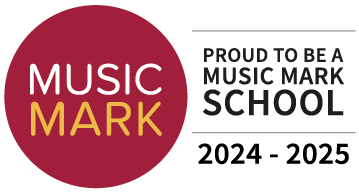
Art and Design
At Mundella, we value Art and Design and the opportunities that it provides for our children to be creative and to express themselves. We believe art can have a powerful and positive effect on children, helping them to become confident, creative learners who are able to express their individual interests, thoughts and ideas. We believe that a high-quality art and design education should engage, inspire and challenge pupils, equipping them with the knowledge and skills to experiment, invent and create their own works of art, craft and design.
Long Term OverviewArt and Design - Intent
Through hands on experiences, we aim to create a love of art in which children as artists, are inspired by famous artists from different cultures both past and present, have opportunities to develop techniques using a range of mediums and can reflect and evaluate their work. Our children will be given a range of experiences including; drawing, painting, printing, collage, textiles, sculpture as well as digital media. These areas are developed continuously throughout the school from foundation stage through to year six and the children have the opportunity to revisit skills from previous years before learning new ones. As pupils progress, we support them to be able to think critically and develop a more rigorous understanding of Art and Design. When children leave Mundella, we expect them to have a wide range of well-developed art skills in the six areas of our curriculum that they can then build on and develop further as they continue in their education.
Art and Design Implementation
At Mundella, Art and Design is a fundamental part of teaching and learning and is taught from EYFS to Year 6. Children in the Early Years are encouraged to be creative, use their imagination and explore using a range of media and materials. Art and Design is taught on a half termly basis which alternates with Design and Technology. Teachers plan sequences of lessons across the half term that will build on and develop the children’s skills culminating in a final piece. The skills and knowledge that children will develop throughout each art unit are mapped across each year group and across the school to ensure progression. The Art and Design unit is linked to the class topic. This enables Art and Design to be linked to other curriculum areas, with the children developing a considerable knowledge of individual artists. Developing skills in drawing is given a high status and children are encouraged to draw not only in art lessons, but across the curriculum. We encourage children to express individuality in their work and to keep their own personalised sketch books where they can explore ideas, be inventive and take risks. Trips linked to the class topic and Art and Design unit are carried out to enhance the children’s learning experiences and deepen their understanding and knowledge.
Art and Design - Impact
At Mundella, the impact of our Art and Design curriculum can be seen in the children’s personalised sketch books as well as in their final piece. Our aim is to foster a love of Art and develop creativity so pupil voice is an important part of our assessment allowing us to continually reflect upon our Arts curriculum. At the beginning of each unit, a knowledge organiser outlines the main learning objectives, vocabulary, skills and artist that the children will be learning about. The opportunity to evaluate and reflect on the learning is planned for at the end of the unit to enable the children to see how their learning is progressing and where they need to take it next.
Design and Technology
Intent
At Mundella, Design and Technology is an inspiring and practical subject. It encourages children to learn to think creatively to solve problems both as individuals and as members of a team.
More about Intent in Design and Technology
. . . . At Mundella, we encourage children to use their imagination, to design and make products that solve real and relevant problems within a variety of contexts, considering their own and others’ needs. We aim to, wherever possible, link work to our class topics.
The children make links to designs and designers throughout history, providing opportunities for children to critically reflect upon and evaluate others' designs and the overall effectiveness of the product before evaluating their own. As pupils progress, we support them to develop a more rigorous understanding of the discipline of design and technology.
The children at Mundella have the opportunity to develop their skills in mechanisms, structures, textiles, mechanical systems, electrical systems and cooking and nutrition. These areas are developed continuously throughout the school from foundation stage through to year six and the children have the opportunity to revisit skills from previous years before learning new ones. We encourage children to express individuality in their work and to keep their own personalised sketchbooks where they can explore ideas, be inventive and take risks. When children leave Mundella, we expect them to have a wide range of well-developed skills in the six areas of our curriculum.
Implementation
At Mundella, the children will be taught at least three DT units in an academic year. Our teachers use our curriculum document to help plan a sequence of lessons that will build on and develop the children’s skills culminating in a final piece.
More about Implementation of Design and Technology
. . . . The skills and knowledge that children will develop throughout each DT topic are mapped across each year group and across the school to ensure progression. Each new unit of work begins with a recap of the previous related knowledge. This helps children to retrieve what they have learnt in the earlier sequence of the programme of study, and ensures that new knowledge is taught in the context of previous learning to promote a shift in long term memory.
Key vocabulary for the new topic is also introduced as part of this ‘unit introduction’ and children are given a knowledge organiser. The teaching of DT across the school follows the National Curriculum. Children design products with a purpose in mind and an intended user of the products. Food technology is taught in every year group, with children developing an understanding of where food comes from, the importance of a varied and healthy diet and how to prepare this. We try where possible to invite parents in to taste the final products and build a healthy eating and diverse culture which encapsulates our school.
The teaching of DT follows the design, make and evaluate cycle, with technical knowledge and relevant vocabulary shared at each stage. The design process is always linked to real life, relevant contexts to give meaning to the learning. When making their products, the children are given choice and a wide range of tools and materials to choose from. When evaluating, the children are taught to evaluate their own products against the initial design criteria to see how well it has met the needs and wants of the intended user and to identify any changes that could be made. The teaching of DT follows the design, make and evaluate cycle, with technical knowledge and relevant vocabulary shared at each stage.
The design process is always linked to real life, relevant contexts to give meaning to the learning. When making their products, the children are given choice and a wide range of tools and materials to choose from. When evaluating, the children are taught to evaluate their own products against the initial design criteria to see how well it has met the needs and wants of the intended user and to identify any changes that could be made.
Impact
The impact of our DT curriculum can clearly been seen in the children’s books.
More about Impact in Design and Technology
. . . . The opportunity to evaluate and reflect on the learning is planned for towards the end of the unit to enable the children to see how their learning is progressing and where they need to take it next.
On completion of the unit of work, key assessment targets from Sonar are identified, and the children are able to self-assess against them. Class teachers then use the children’s research and preparatory work, along with the final piece to assessment the objectives on Sonar and to make a judgement as to whether each child is working towards, at or above the expected level.
Here is the Long Term Plan for DT
Geography
At Mundella, our aim in Geography is to help children have a better understand of the World; its people, places and environments, and the interactions between them. In our topics, we look at what places are like, why and how they are connected, and the importance of a location.
We believe that learning about ‘Earth as our home’ should fascinate and inspire children. It is important that questions aren’t just answered but our children ask and debate questions regarding the future and how they can influence change.
Children learn about why places are changing, how they are interconnected and why patterns of inequality exist at both local and global scales.
At Mundella, we want children to realise that Geography is about their world. We want to build on their interests and experiences to ensure that pupils are engaged with innovative and enjoyable learning that has relevance to their lives while challenging them to think about 'real world' issue.
We carefully select units that reflect the needs of our children which focus on the local area and incorporate fieldwork to deepen understanding as well as provide opportunities to take them beyond the local area to explore the UK and the wider world, to develop a passion for learning so that they leave us excited about geography as a subject.
Our curriculum wants to develop caring and understanding citizens for the future.
Long Term Overview for Geography
History
At Mundella Primary School we aim to deliver a history curriculum that is accessible to all and that will maximise the outcomes for every child so that they know more, remember more and understand more.
We sequence lessons carefully so that the children’s historical knowledge, understanding and skills develop over time.
We have designed our curriculum so that children gain a coherent knowledge and understanding of Britain’s past and that of the wider world as they progress through the school. We have selected and designed our units so that our curriculum includes events, narratives and individuals that are relevant and important to Mundella.
The historical skills are also mapped out to allow children to work as historians. In our history curriculum, we have thought about key concepts that run through the units of learning. These include similarities and differences, chronology, aspects of history, change and continuity, cause and consequence and historical significance. By carefully mapping these concepts across the units and revisiting them in different sequences of learning, we ensure children make links and gain historical perspective by placing their growing knowledge into different contexts, understanding the connections between local, national and international history; and between short- and long-term timescales.
In addition to this, we recognise the important role that History plays in preparing our children with skills that they can use for life, raising their aspirations, understand how to be a good and responsible citizen, understanding change and societal development and a context in which to understand themselves and others. This is extremely important for children at Mundella in allowing them access to a much wider world.
We also intend for our children to have real life experiences and learn about History in an active and creative way and therefore visitors and trips form a fundamental part of our curriculum.
The links between History and other subjects are explored through our termly topics.
Here is the Long Term Overview for History
Modern Foreign Languages
Part of the Primary National Curriculum, includes learning a foreign language. The government provides a list of languages to choose from and Mundella Primary School has elected to teach French, due to our proximity to France, and to help prepare children for secondary education.
Our weekly languages lessons follow the PlanIt French scheme from Twinkl. PlanIt French offers a carefully planned sequence of lessons, ensuring progressive coverage of the skills required by the national curriculum. It provides an introduction to the culture of French-speaking countries and communities. It aims to foster children’s curiosity and help deepen their understanding of the world. A linear curriculum has been chosen to allow opportunity for children to gradually build on their skills. PlanIt French enables children to express their ideas and thoughts in French and provides opportunities to interact and communicate with others both in speech and in writing. At the heart of PlanIt French is the desire to expose children to authentic French, so the scheme offers regular opportunities to listen to native speakers.
In Lower KS2, children acquire basic skills and understanding of French with a strong emphasis placed on developing their Speaking and Listening skills. These will be embedded and further developed in Upper KS2, alongside Reading and Writing, gradually progressing onto more complex language concepts and greater learner autonomy.
Through the PlanIt French scheme, we intend to inspire pupils to develop a love of languages and to expand their horizons to other countries, cultures and people. We aim to help children grow into curious, confident and reflective language learners and to provide them with a foundation that will equip them for further language studies.

